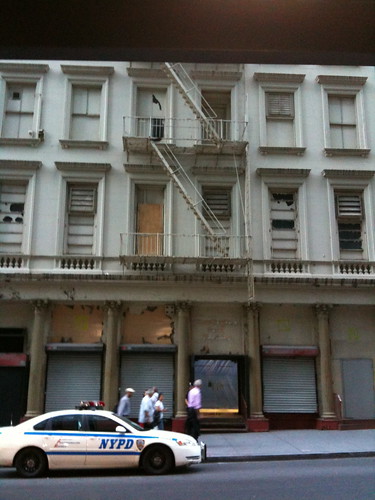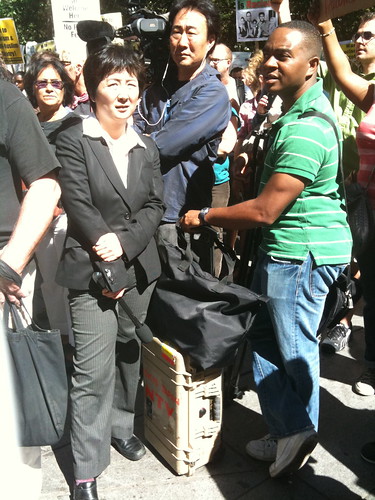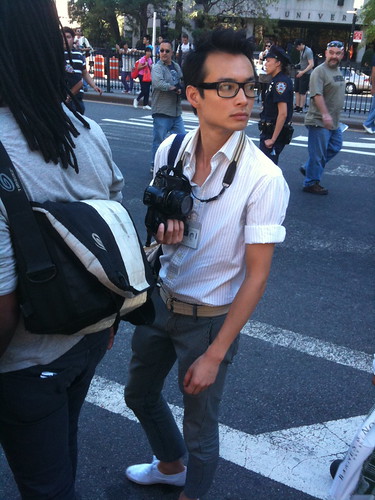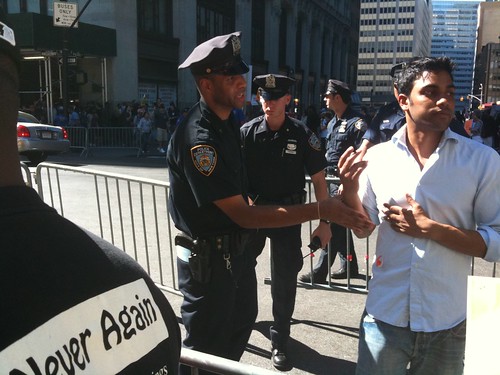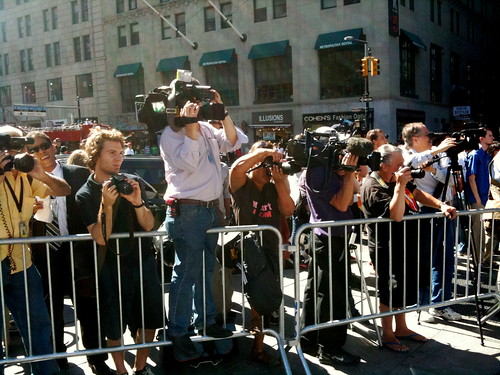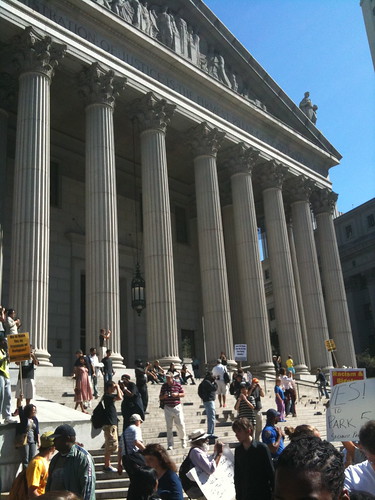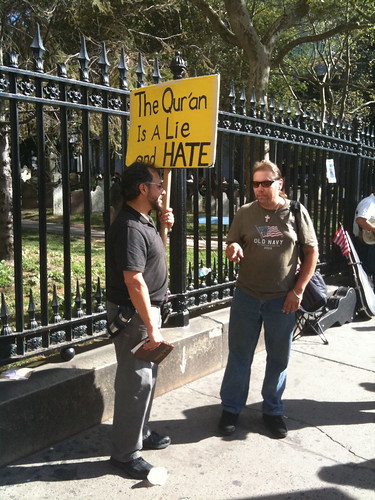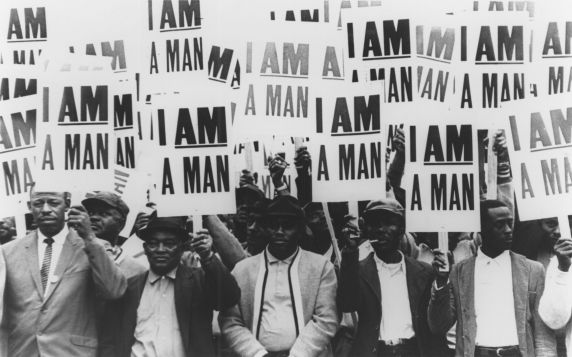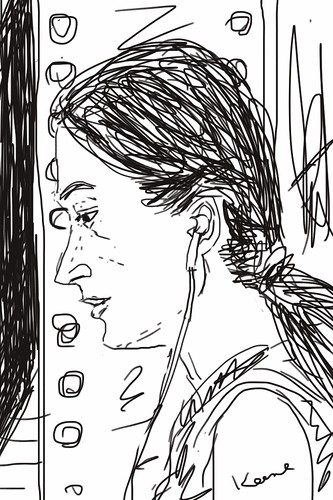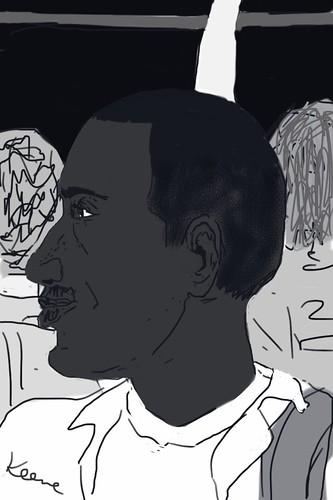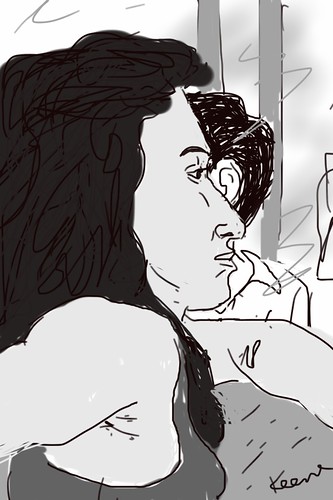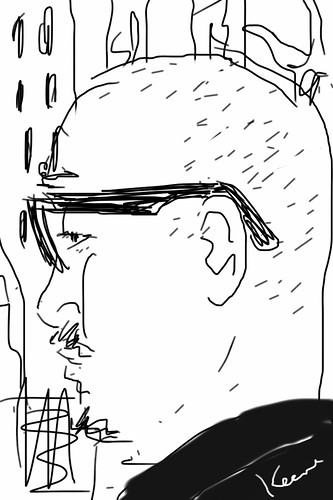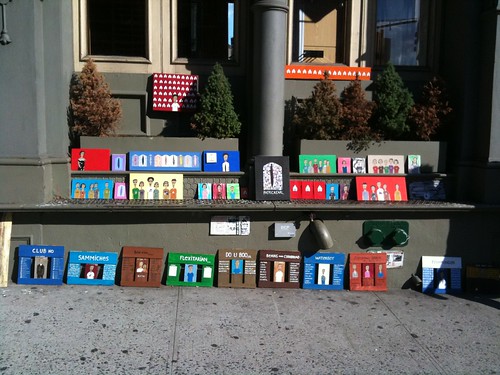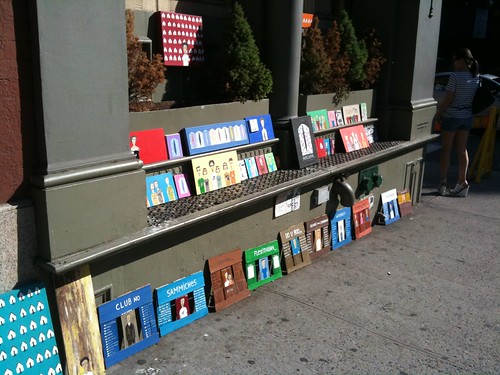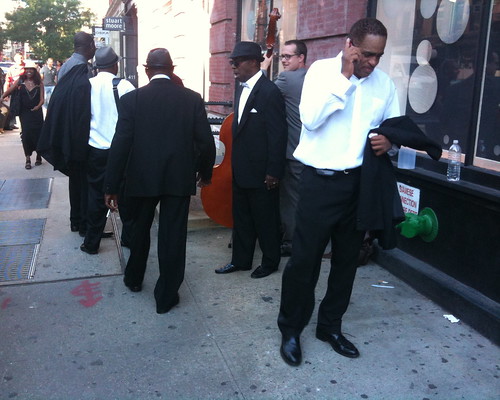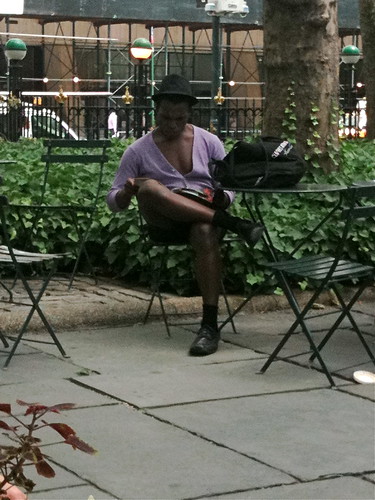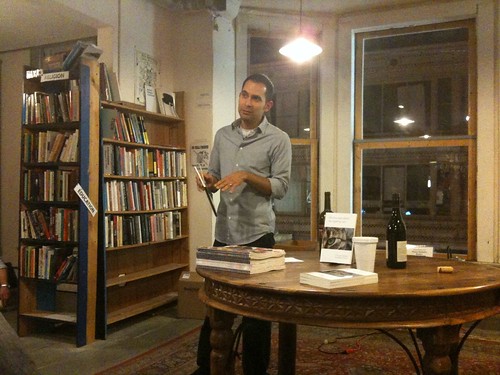
Paul Martínez Pompa
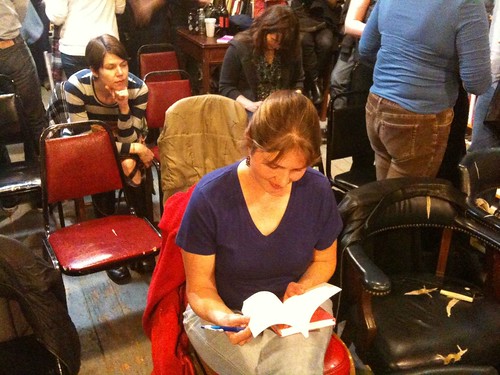
The audience after the reading
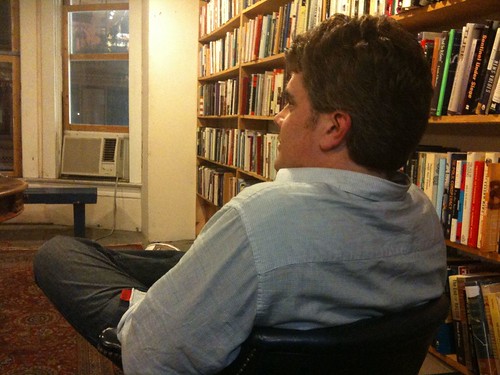
Organizer Larry Sawyer
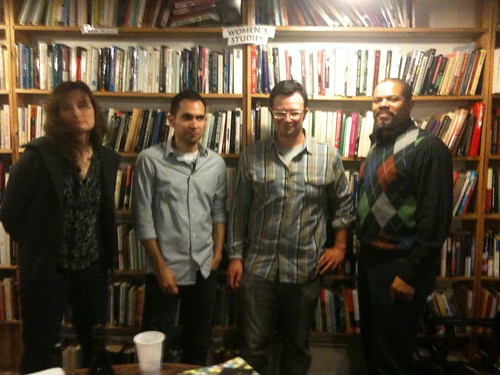
Kristin Dykstra, Paul Martínez Pompa, Daniel Borzutzky, and I, after the reading (taken by Gabriel Gudding)
 Paul Martínez Pompa and I also read, and because the event was celebrating translation, I read translations of two poets I've been translating over the last few months, Brazilian writers Ana Cristina Cesar (1952-1983) and Paul Leminski (1944-1989), both of whom were contemporaries of Zurita (Pérez was born in 1964), and are highly regarded in contemporary Brazilian and South American letters. Both also have been linked as part of the loosely affiliated "marginal poets," an affiliation based in part on their novel and somewhat experimental, though differing approaches to poetic style and address.
Paul Martínez Pompa and I also read, and because the event was celebrating translation, I read translations of two poets I've been translating over the last few months, Brazilian writers Ana Cristina Cesar (1952-1983) and Paul Leminski (1944-1989), both of whom were contemporaries of Zurita (Pérez was born in 1964), and are highly regarded in contemporary Brazilian and South American letters. Both also have been linked as part of the loosely affiliated "marginal poets," an affiliation based in part on their novel and somewhat experimental, though differing approaches to poetic style and address.Cesar was a queer São Paulo-born poet who studied and spent time in London, before later living in Brasília, and her poetry often unfolds like conversation, or dialogues, the intimacy enhanced and mitigated by her wide range of references, allusions and irony. Her fame has steadily grown since her death, by suicide, at the age of 31. Leminski, whose ancestry included African and Polish roots, often played with rhyme and rhythms, while also incorporating poetic forms such as haikai and haibun, drawings and calligraphy, and other languages, such as English. I find myself drawn back again and again to the work of both, and was delighted to have an opportunity to read some of these publicly. I am posting one translation by each below. Enjoy!
ANA CRISTINA CESAR
GRAMAS
O coração tem pouca ironia de tardinha
Segredos carnais à flor da pele
poemas descarnados aguardando
A vida recusa transportar-se para outeiros
buracos cavados por doninhas
ervas que florescem
O coração tem pouquíssimo fôlego na piscina
Nos quintais dispara úmido
Nas salas fechadas cuida das buzinas
A vida se encarrega das janelas
mas acaba descendo em correria
Não cabe Não suporta Não tem peso
GRAMS
The heart has little irony in the late afternoon
Carnal secrets on the surface of the skin
skinny poems, just waiting
Life refuses to carry itself off to the hills
holes dug by weasels
grass flowering
In the pool the heart has almost no breath left
In the yards it fires wet
In closed rooms it avoids car horns
Life is put in charge of the windows
But it ends up plummeting in a rush
It does not fit Gives no support Is weightless
Copyright © Ana Cristina Cesar, from Antigos e soltos: poemas e prosas da pasta rosa. Organized by Viviana Bosi. Rio de Janeiro: Instituto Moreira Salles, 2008. Translation © by John Keene, 2010. All rights reserved.
PAULO LEMINSKI
É e é
Dura o diamante
Dentro da pedra pura.
De agora em diante
Só o durante dura.
It is and it is
The diamond endures
Within the pure stone.
From now going forward
Only the meantime holds on.
Copyright © Paulo Leminski, from From Leminskiana: antología variada. Selection, chronology and prologue by Mario Cámara. Critical texs by Maria Esther Maciel, Célia Pedrosa and André Dick. Testimonies by Augusto de Campos, Décio Pignatari, Haroldo de Campos, Waly Salomão, and Jorge Mautner. Poems by Régis Bonvicino. Bueos Aires: Corregidor, 2005. Translation © John Keene, 2010. All rights reserved.



